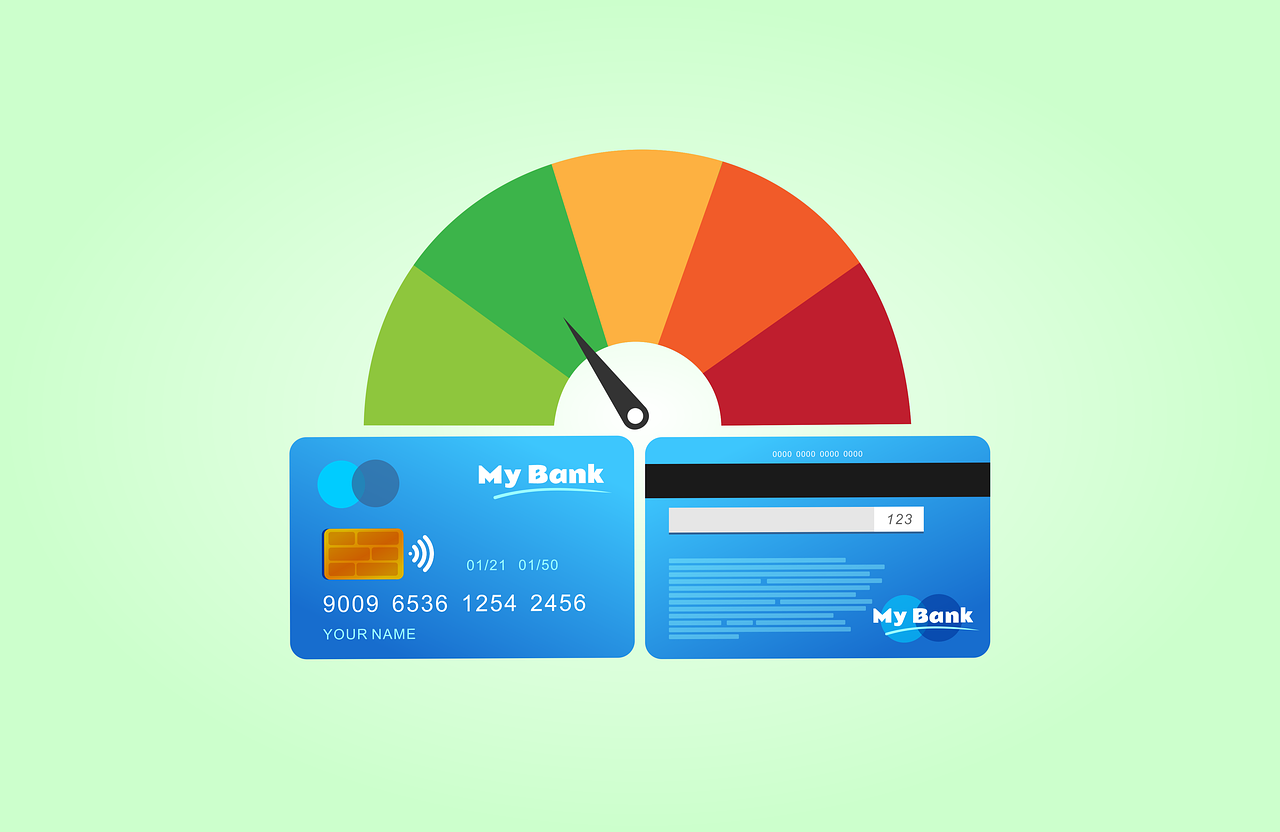In the world of personal finance, a good credit score can open doors to better loan rates, easier approval for credit cards, and more favorable terms on mortgages.
However, many people are unaware that their credit score can also have a significant impact on their insurance rates.
This article delves into how credit scores affect insurance premiums, the reasons behind this correlation, and strategies to improve your credit score to potentially lower your insurance costs.
Understanding Credit Scores
Before exploring the relationship between credit scores and insurance rates, it’s essential to understand what a credit score is. A credit score is a numerical representation of your creditworthiness.
It is calculated based on your credit history, which includes factors such as your payment history, amount of debt, length of credit history, types of credit accounts, and recent credit inquiries.
In general, credit scores range from 300 to 850. Higher scores indicate better creditworthiness, while lower scores suggest higher risk.
The most commonly used credit scoring models are FICO and Vantage Score, each of which considers slightly different factors but aims to assess the same basic information.

How Credit Scores Affect Insurance Rates
Insurance companies use credit scores as one factor in determining your insurance premiums. While the specifics can vary depending on the insurer and the type of insurance, credit scores often play a role in the following ways:
- Risk Assessment: Insurance companies view credit scores as a predictor of risk. The rationale is that individuals with higher credit scores are statistically less likely to file claims and, when they do, tend to file smaller claims. Conversely, those with lower credit scores are seen as higher-risk individuals, potentially leading to higher premiums.
- Premium Calculation: Insurers use credit scores to help calculate premiums for various types of insurance, including auto, home, and renters insurance. A lower credit score may result in higher premiums, as the insurer factors in the perceived risk associated with insuring the policyholder.
- Policy Approval: In some cases, a low credit score can impact your ability to secure insurance coverage. Insurers may be more cautious about offering policies to individuals with poor credit histories, potentially leading to higher rates or even denial of coverage.
The Connection Between Credit Scores and Insurance Rates
The link between credit scores and insurance rates is rooted in statistical analysis. Research has shown that there is a correlation between credit scores and the likelihood of filing insurance claims.
This relationship is not a direct cause-and-effect scenario but rather a statistical association that insurers use to assess risk.
1. Statistical Correlation
Studies have indicated that individuals with lower credit scores are more likely to file insurance claims and, when they do, the claims tend to be more frequent and larger in size. Consequently, insurers use credit scores to predict the probability of future claims and adjust premiums accordingly.
2. Regulatory Considerations
In some regions, the use of credit scores in determining insurance rates is regulated. For instance, in California, Maryland, and Massachusetts, insurers are prohibited from using credit scores to set rates for auto insurance. However, in many other states, insurers are allowed to use credit scores as part of their underwriting process.
Types of Insurance Affected
Credit scores can impact several types of insurance, including:
- Auto Insurance: Many auto insurers use credit scores to set premiums. Those with higher credit scores often benefit from lower rates, while those with lower scores may face higher costs.
- Home Insurance: Similar to auto insurance, home insurance premiums can be influenced by your credit score. Homeowners with better credit scores typically receive more favorable rates.
- Renters Insurance: Renters insurance, which covers personal property within a rental unit, can also be affected by credit scores. Insurers may use credit scores to determine the cost of premiums.
- Life Insurance: While less common, some life insurance providers may consider credit scores when assessing applicants, particularly in regard to the pricing of premiums.

How to Improve Your Credit Score
Improving your credit score can lead to better insurance rates, among other financial benefits. Here are some strategies to enhance your credit score:
- Pay Your Bills on Time: Timely payments are crucial for maintaining a good credit score. Late payments can have a significant negative impact.
- Reduce Your Debt: Lowering your credit card balances and paying off outstanding debts can improve your credit utilization ratio, which positively affects your credit score.
- Avoid New Credit Inquiries: Each time you apply for new credit, a hard inquiry is made on your credit report. Multiple inquiries within a short period can hurt your credit score.
- Check Your Credit Report Regularly: Regularly reviewing your credit report helps identify and correct any inaccuracies or fraudulent activity.
- Maintain a Healthy Credit Mix: Having a mix of credit types (e.g., credit cards, installment loans) and managing them responsibly can benefit your credit score.
- Keep Old Accounts Open: Length of credit history impacts your score. Keeping older credit accounts open, even if unused, can contribute positively.

Real-World Examples
To illustrate how credit scores affect insurance rates, let’s look at some real-world examples:
Example 1: Auto Insurance Premium Differences
John and Jane both drive the same make and model of car and live in the same area. However, John has a credit score of 720, while Jane’s score is 620. Despite having similar driving records and insurance needs, John may receive a significantly lower auto insurance premium than Jane due to his higher credit score. This difference highlights the impact of credit scores on insurance rates.
Example 2: Home Insurance Rate Variations
Consider two homeowners with identical properties in the same neighborhood. Homeowner A has a credit score of 750, while Homeowner B has a score of 650. Homeowner A might benefit from lower home insurance rates compared to Homeowner B because insurers see higher credit scores as indicative of lower risk.
Example 3: Renters Insurance Cost Implications
Lisa and Mark are both renting apartments in the same city. Lisa has a credit score of 700, while Mark’s score is 580. When they apply for renters insurance, Lisa is likely to receive a more favorable rate than Mark due to her higher credit score.

Tips for Managing Your Credit Score
Here are some additional tips to effectively manage and improve your credit score:
- Automate Payments: Setting up automatic payments for bills can help ensure you never miss a due date, which is beneficial for your credit score.
- Utilize Credit Monitoring Services: Credit monitoring services can alert you to changes in your credit report and help you stay on top of your credit health.
- Seek Professional Advice: If you’re struggling with debt or credit issues, consider consulting a financial advisor or credit counselor for personalized guidance.
- Avoid Excessive Credit Applications: Applying for too many credit accounts in a short period can negatively impact your credit score. Be selective about new credit applications.
- Be Patient: Improving your credit score takes time. Focus on consistent, responsible credit management practices and be patient as your score gradually improves.
How Our Team Came Up with These Insights
Our insights into the impact of credit scores on insurance rates stem from a combination of personal experience, client interactions, and thorough research.
We analyzed industry trends, reviewed case studies, and consulted with financial experts to understand the complex relationship between credit scores and insurance premiums.
By synthesizing this information, we aim to provide practical advice and actionable strategies for managing your credit score and optimizing your insurance rates.
Conclusion
Understanding the impact of your credit score on insurance rates is crucial for managing your finances effectively. A good credit score can lead to lower insurance premiums, while a poor score may result in higher costs.
By implementing strategies to improve your credit score, such as paying bills on time, reducing debt, and regularly monitoring your credit report, you can potentially lower your insurance rates and enhance your overall financial health.
Navigating the relationship between credit scores and insurance rates may seem complex, but with the right knowledge and proactive measures, you can make informed decisions and secure more favorable terms on your insurance policies.
Stay informed, manage your credit wisely, and take advantage of opportunities to optimize your financial well-being.


Leave a Reply